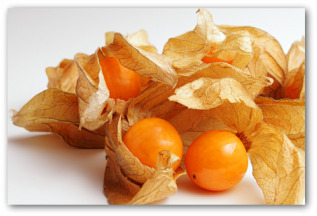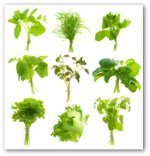Growing and Planting Ground Cherries, Tomatillos, or Husk Tomatoes
Ground cherries are very easy to grow in home vegetable gardens.
This warm season vegetable bears fruit about the size of a cherry tomato.It is also known as husk tomato.
The plants are "individually wrapped" with a green, yellow, or reddish color papery husk.
This is one of the reasons that children find the fruits so interesting!
The botanical name for the plant is physalis pruinosa.
They are quite easy to grow. They are frost sensitive, but will come re-grow from seeds each year if left to do so.
I remember the first time I saw this interesting plant growing in my aunt's garden. I was amazed and thrilled with the little papery husks covering the warm sweet fruit inside.
They were delicious to eat right off the plant while they were warm from the sunshine!
They were growing on the edge of a field in an old garden area, and came up on their own each year.
About Tomatillos
Tomatillos resemble the beautiful orange Chinese lantern plant which is a close relative.
Peeling back the husk of tomatillos reveals a green, yellow or purplish seedy solid fruit that tastes either sweet or tangy depending on the chosen variety.
The bush reaches heights of 18 to 48 inches. The fruit should not be harvested until the husks become tan-colored and drop from the plant.
The pulp of certain varieties of tomatillos is used for jams, pies, and salsas.
All types of husk tomatoes cultivate well in similar growing conditions to those required for a regular garden variety tomato.
The one big exception is that they do not need the consistent heat that a tomato requires for prosperous growth.
You may need to shop online for seeds if the secret has not gotten out yet what great tasting vegetable ground cherries are in your local markets.
Order seed in the wintertime or early spring. As a side note, ground cherries are one of the top least-time-consuming organic garden vegetables you can grow!
Download Free Garden Planning Worksheets, Garden Diary, Zone Chart, Or Planting Guide
How to Plant
• For adequate yield, plant 1-2 plants per household member.
• Start seeds indoors 4 to 6 weeks before transplanting in the garden.
• In warm climates, plant in spring 4-6 weeks after the last danger of frost has passed.
• Planting soil temperature should be 65 to 85 °F.
• The plants prefer cooler growing temperatures of 50-75 °F.
In soil preparation, test vegetable garden site for sufficient levels of nitrogen, phosphorous, and potassium.
Also check for proper acid-alkaline balance. Maintaining a 6.0 to 6.8 pH level is ideal for this plant.
This vegetables gardening task can be accomplished by supplementing the bed with organic compost.
Planting and Growing Seeds
• Sow the seeds 1/8 inch deep, spacing the plantings 2 inches apart, in rows spaced 2 feet from the other.
• Thin successful plants to 10 inches apart.
• The vegetable plants are susceptible to common tomato pests and diseases.
Care of Ground Cherries
Keep soil moist and free of weeds.
Deep-water mature plants every 5-10 days, contingent on the weather condition or when soil becomes dry to the touch.
The plants will mature in about 120 days.
Harvest when husks turn a tan color, open, and fruit begins dropping from the plant.
Vegetable gardeners soon discover that leaving behind some ripened cherries on the ground produces a new crop the following season.
• Companion plants are tomatoes and beans.
• They do not make good garden bed mates with melons, squash, or pumpkins due to competition over which vegetable has the most ground rights!
• Husk tomatoes can be stored in the vegetable bin of the refrigerator for several weeks. Store canned tomatillos as salsa, jam, or preserves for up to one year.
Specific types of include Aunt Molly's, Cossack Pineapple, Golden Tomatillo, Goldie, Indian Strain, Purple DeMilpa, Toma Verde, Tomate Verde, Yellow Husk, and Verde Puebla Tomatillo.
As a final note, although it is important to avoid subjecting the plants to freezing temperatures, the fruit tends to be sweeter after experiencing a slight frost!








